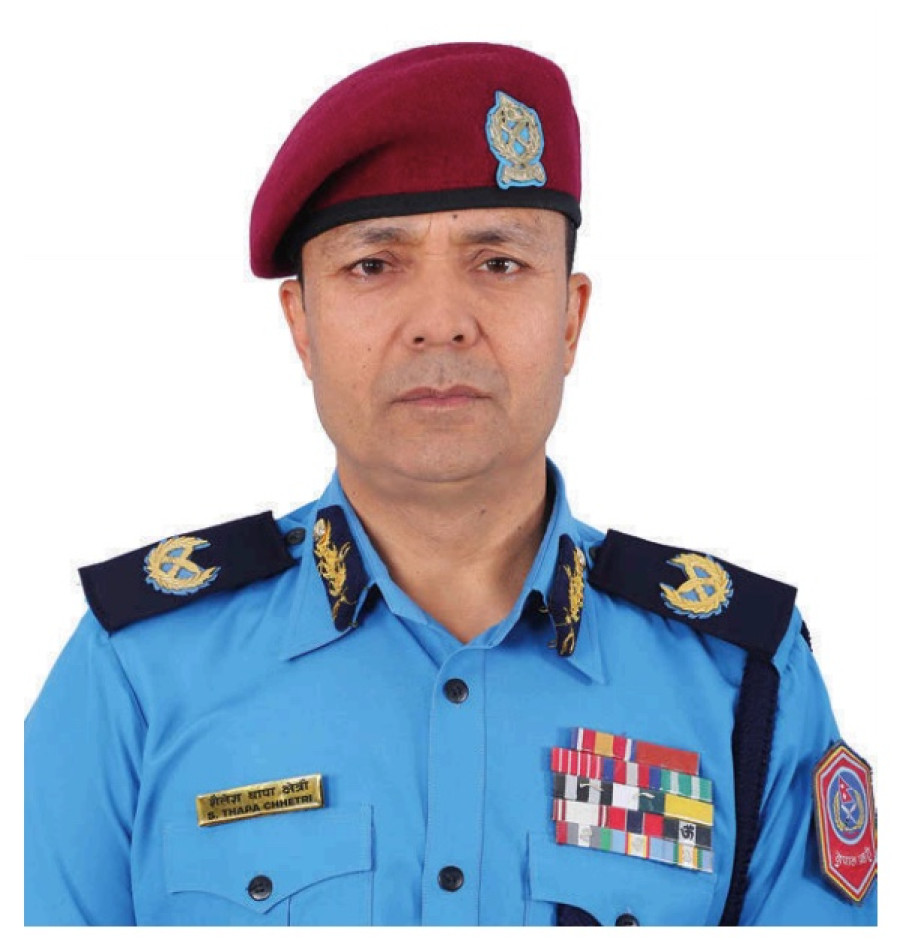National
Host of challenges await new police chief Kshetri
Resolving long-pending hi-profile cases and mending ties with the public should be high on his agenda, experts say.
Shuvam Dhungana
The newly-appointed head of Nepal Police Shailesh Thapa Kshetri takes charge at a time when the force faces a host of challenges, particularly over long-pending hi-profile cases and its relations with the public.
Fifty-two-year-old Kshetri, who was appointed the 28th chief of Nepal Police on Tuesday, had joined the state body in 1992 as inspector, and was heading the Department of Human Resources and Administration before being promoted to the top position.
Kshetri, along with Additional Inspector General Hari Bahadur Pal were in the race for the post, but the government picked Chhetri based on his seniority and performance. Kshetri will lead the police force for 22 months until his retirement.
Kshetri’s predecessor Thakur Prasad Gyawali took charge of Nepal Police for nearly six months after being appointed to the position on January 12. Gyawali retired on Wednesday after completing his 30-year stint with epal Police. Although Gyawali couldn’t crack long-pending hi-profile cases during his tenure, he was not involved in making controversial decisions, critics say.
This presents a host of challenges for Kshetri, said former officials and security experts.
Cases such as Nirmala Panta rape and murder, 33 kg gold smuggling, and case of use of excessive force against the public, which appear on social media from time to time, have tarnished the image of Nepal Police in the past few months.
“The organisation needs to regain the trust of its own personnel as they believe that transfers and promotions take place only if you have political connections,” said former Deputy Inspector General Hemanta Malla. “In addition to this, mobilising the entire team to control crime as well as implementing the law during the pandemic is another challenge for the new chief.”
However, only a police chief cannot change the whole image of organisation, government support is also needed, said Malla.
Kshetri, who has also worked as chief of the Metropolitan Police Office, Ranipokhari, and at Inspector General's Secretariat and as spokesperson for the force, should also bring changes to the way police deal with human rights, said Ram Dayal Rakesh, a former member of the national human rights commission.
“From using excessive force against civilians to controversial custodial deaths, police personnel were found violating human rights from time to time,” he said. “However, now they should change their behaviour and the new leadership can make them do so,” said Rakesh.
Right Activists also suggested that the police investigate every case with due diligence. In the Nirmala Pant case, which saw a 13-year-old raped and murdered in Kanchanpur, numerous gaps were identified in the investigation.
According to Malla, dissatisfaction is growing among personnel.
“Political interference has resulted in the decline of the glory of organisation. So the leadership should ensure that the chain of command is maintained,” said Malla.




 13.12°C Kathmandu
13.12°C Kathmandu














